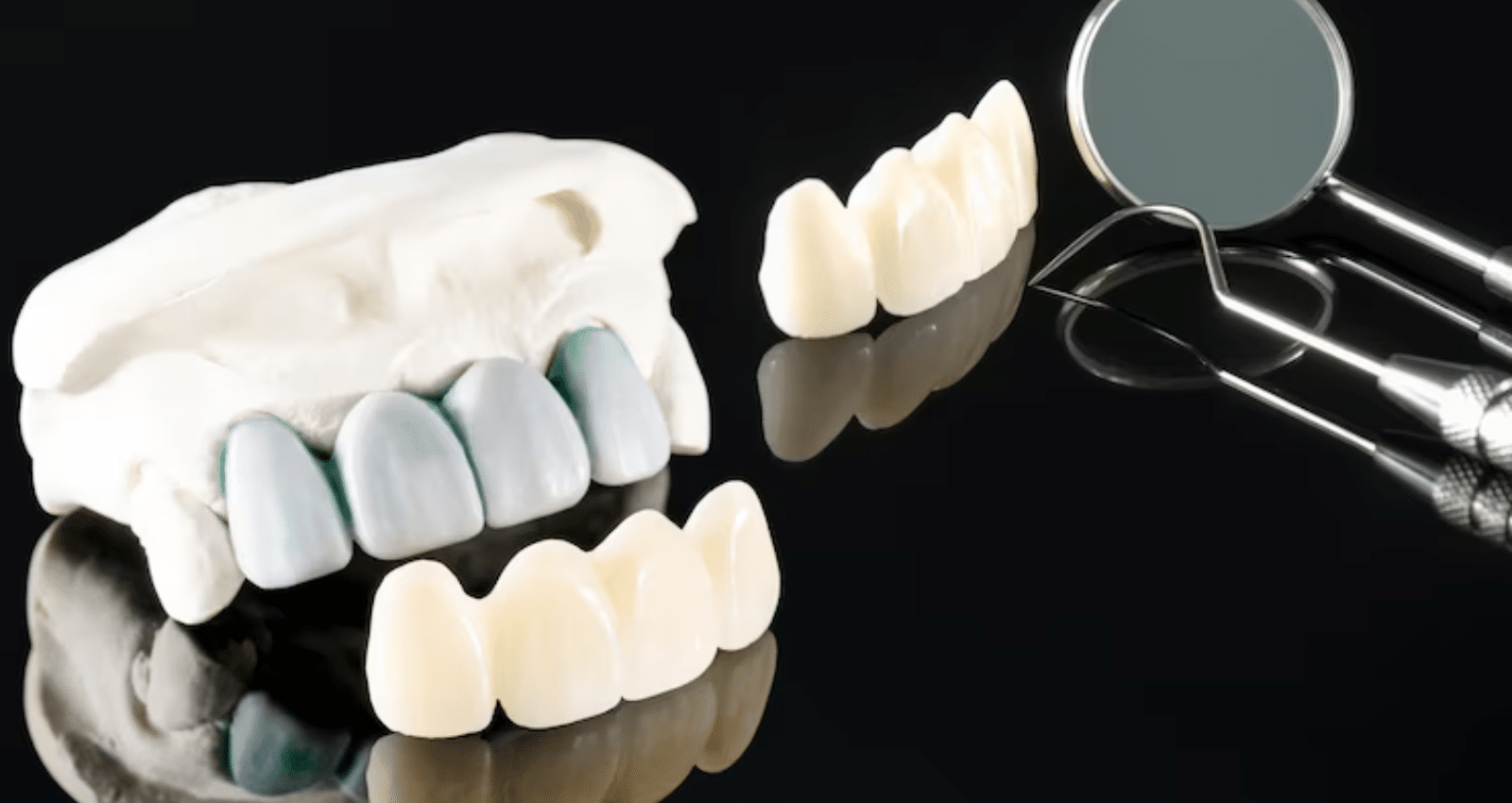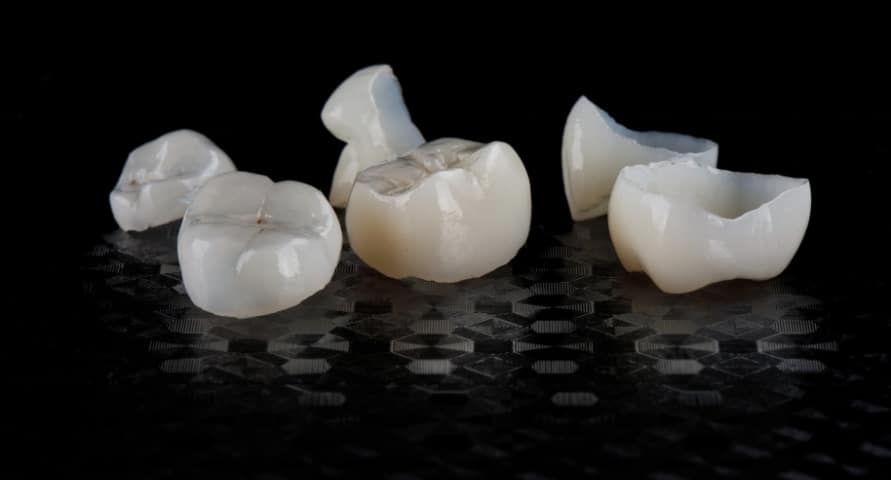245 11th Ave NE Hickory, NC 28601
How Should I Care for a New Dental Crown?

Dental crowns are a common restorative dental treatment used to protect and enhance the functionality of damaged or decayed teeth. Once you’ve invested in a new dental crown, it’s crucial to understand how to care for it properly to ensure its longevity and effectiveness. In this comprehensive guide, we’ll delve into everything you need to know about caring for your new dental crown, from immediate post-procedure care to long-term maintenance.
Immediate Post-Procedure Care
1. Managing Discomfort and Sensitivity
After getting a dental crown, it’s common to experience some discomfort and sensitivity. Here’s how to manage these symptoms:
- Pain Relief: Over-the-counter pain relievers like ibuprofen or acetaminophen can help alleviate any pain or discomfort. Always follow the dosage instructions on the label.
- Sensitivity: You might notice sensitivity to hot and cold foods or drinks. This should subside over time. Using toothpaste designed for sensitive teeth can help.
2. Avoiding Certain Foods
In the days immediately following the crown placement, it’s wise to avoid certain foods to prevent damage to your new crown.
- Hard Foods: Avoid biting into hard foods like nuts, hard candies, and ice.
- Sticky Foods: Steer clear of sticky foods like caramel and chewing gum, which can pull at the crown.
- Chewing: Try to chew on the opposite side of your mouth to give the new crown time to settle.
Long-Term Care for Your Dental Crown
1. Maintaining Excellent Oral Hygiene
Good oral hygiene is paramount to the longevity of your dental crown.
- Brushing: Brush your teeth at least twice a day using fluoride toothpaste. Pay special attention to the area around the crown to prevent plaque buildup.
- Flossing: Floss daily to remove food particles and plaque from between your teeth and around the crown. Consider using floss threaders if your crown is connected to a bridge.
- Mouthwash: Use an antibacterial mouthwash to help reduce plaque and maintain gum health.
2. Regular Dental Check-Ups
Regular dental check-ups are essential for monitoring the health of your crown and overall oral health.
- Professional Cleanings: Schedule cleanings every six months to ensure that your teeth and gums remain healthy.
- Dental Exams: Your dentist will check the integrity of your crown during these visits and address any potential issues early on.
3. Protecting Your Crown from Damage
Certain habits and behaviors can increase the risk of damaging your crown. Here’s how to protect it:
- Avoid Grinding: If you grind your teeth at night, talk to your dentist about getting a night guard to protect your crown.
- No Chewing on Non-Food Items: Avoid using your teeth to open packages or bite down on non-food items.
- Sports Protection: If you play contact sports, wear a mouthguard to protect your teeth and crowns from injury.
Dietary Considerations for Crown Longevity
1. Foods to Include
Incorporate foods that promote dental health and are less likely to damage your crown.
- Calcium-Rich Foods: Dairy products, leafy greens, and fortified foods help maintain strong teeth.
- Crunchy Vegetables: Carrots, celery, and apples can help clean your teeth and gums.
- Hydration: Drink plenty of water to keep your mouth hydrated and wash away food particles.
2. Foods to Limit or Avoid
Certain foods and drinks can negatively impact the longevity of your dental crown.
- Sugary Foods and Drinks: Reduce your intake of sugary snacks and beverages to prevent decay around the crown.
- Acidic Foods and Drinks: Limit acidic foods and drinks like citrus fruits, soda, and wine, which can erode the enamel and affect the cement holding your crown.
Addressing Potential Issues with Your Dental Crown
1. Loose or Detached Crown
If your crown feels loose or falls out, contact your dentist immediately. A loose crown can allow bacteria to seep underneath, leading to tooth decay.
- Temporary Fixes: While waiting for your dental appointment, you can use dental cement available at pharmacies to temporarily reattach the crown. However, this is not a permanent solution.
2. Pain or Sensitivity
Persistent pain or sensitivity might indicate an underlying issue, such as decay or damage to the tooth underneath the crown.
- Consult Your Dentist: Persistent discomfort should be evaluated by your dentist to determine the cause and appropriate treatment.
3. Gum Irritation or Swelling
Gum irritation or swelling around the crowned tooth can be a sign of gum disease or an ill-fitting crown.
- Proper Oral Hygiene: Maintain good oral hygiene and use an antibacterial mouthwash to reduce inflammation.
- Dental Visit: If the irritation persists, schedule a visit to your dentist for an assessment.
Special Considerations for Different Types of Crowns
1. Porcelain Crowns
Porcelain crowns are popular for their natural appearance but require careful handling to avoid chipping.
- Avoid Hard Foods: Be cautious with hard and crunchy foods that can chip the porcelain.
- Regular Check-Ups: Regular dental check-ups are crucial to monitor the crown’s condition.
2. Metal Crowns
Metal crowns, often made from gold or other alloys, are durable and less prone to damage.
- Routine Care: Standard oral hygiene practices are usually sufficient for metal crowns.
- Less Aesthetic Concern: These crowns are typically used on molars where appearance is less of a concern.
3. Porcelain-Fused-to-Metal (PFM) Crowns
PFM crowns offer the durability of metal and the aesthetic appeal of porcelain.
- Monitor for Wear: Check for any signs of wear where the metal and porcelain meet.
- Professional Cleanings: Regular professional cleanings help maintain the crown’s integrity and appearance.
Enhancing the Lifespan of Your Dental Crown
1. Good Habits
Adopting good oral habits can significantly extend the lifespan of your dental crown.
- Gentle Brushing: Use a soft-bristled toothbrush to avoid excessive wear on the crown.
- Avoid Staining Agents: Minimize consumption of staining agents like coffee, tea, and tobacco.
2. Understanding the Lifespan
The lifespan of a dental crown varies depending on the material and care.
- Material Longevity: Porcelain crowns typically last 10-15 years, while metal crowns can last 20 years or more.
- Regular Maintenance: Consistent and proper care can maximize the lifespan of your crown.
Caring for a new dental crown requires a combination of immediate post-procedure care, long-term maintenance, dietary considerations, and regular dental check-ups. By following these guidelines, you can ensure that your crown remains in excellent condition, providing both aesthetic appeal and functionality for many years to come.
Remember, investing in proper care today can prevent complications and extend the life of your dental crown, ensuring a healthy and confident smile. Always consult with your dentist if you experience any issues or have concerns about your dental crown to receive personalized advice and treatment.



